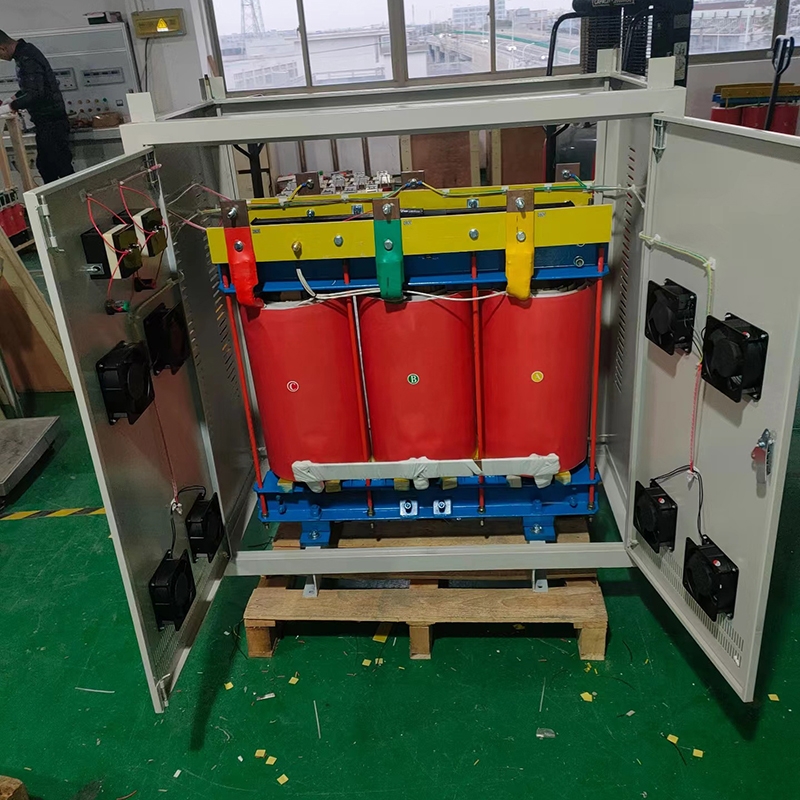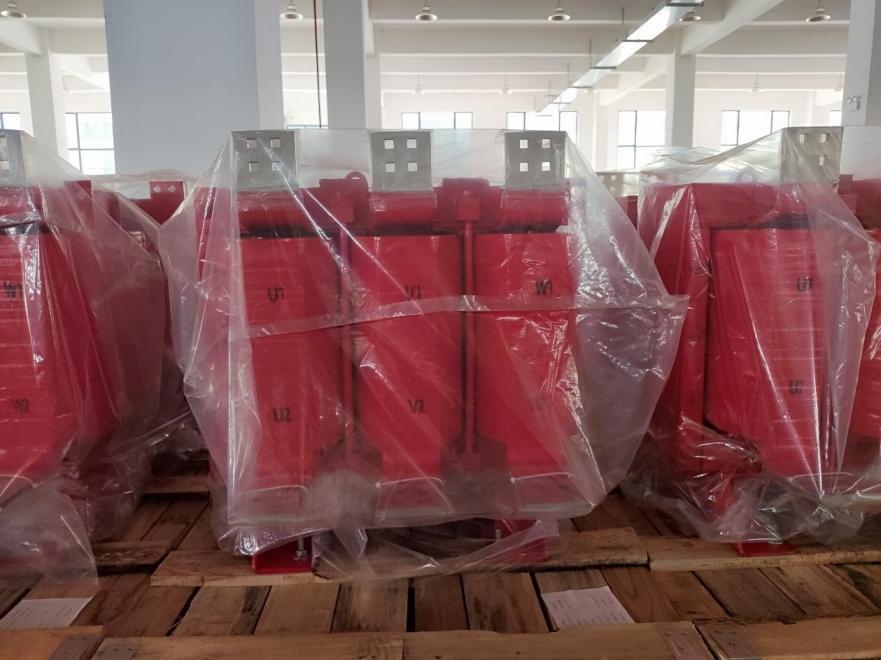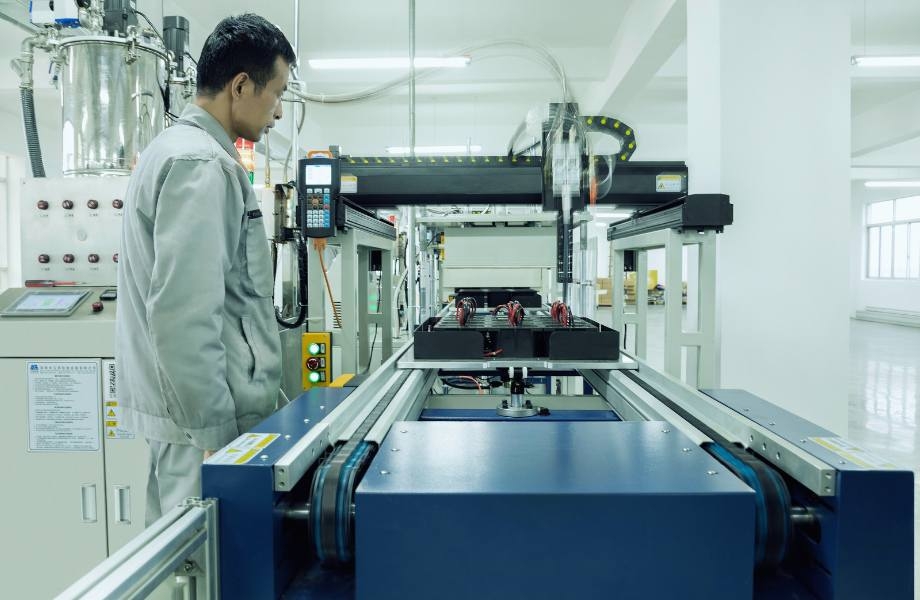Filter reactors play a vital role in power system optimization, offering advantages such as improved power quality, cost-effectiveness, and environmental sustainability. Despite challenges in design, deployment, and integration, innovations in technology and ongoing research drive advancements in filter reactor systems. Collaborative efforts between industry stakeholders, regulatory bodies, and technology providers will continue to shape the future of filter reactor technology, ensuring efficient and reliable power distribution networks for years to come.
Introduction to Filter Reactors
1.1 Definition and Basic Principles
Filter reactors, integral components in power systems, are passive devices designed to regulate voltage and current by absorbing reactive power. They function by impeding the flow of harmonic currents, thus improving power quality and system stability.
1.2 Importance in Power Systems
Filter reactors play a crucial role in maintaining the efficiency and reliability of power systems. They mitigate voltage fluctuations, reduce harmonics, and enhance overall system performance.
1.3 Types and Applications
Various types of filter reactors cater to different applications, including harmonic filtering, voltage regulation, and reactive power compensation. They find utility in industries, utilities, and renewable energy systems.
1.4 Historical Overview
Filter reactor technology has evolved significantly over time. Initially used for simple reactive power compensation, modern filter reactors integrate advanced materials and designs to address complex power quality issues.
Design and Construction
2.1 Influencing Factors
The design of filter reactors considers factors such as system impedance, load characteristics, and harmonic content. Customization is key to meeting specific requirements and ensuring optimal performance.
2.2 Materials Used
High-quality magnetic cores, copper or aluminum windings, and insulation materials are commonly used in filter reactor construction. These materials ensure durability, efficiency, and minimal losses.
2.3 Engineering Considerations
Efficient and reliable filter reactor design requires thorough engineering analysis. Parameters like temperature rise, stray losses, and mechanical stresses are meticulously evaluated to guarantee long-term functionality.
2.4 Case Studies
Successful filter reactor projects demonstrate their effectiveness in real-world scenarios. Case studies highlight diverse applications and the positive impact of filter reactors on power system operation.
Applications in Power Systems
3.1 Power Quality Improvement
Filter reactors enhance power quality by reducing voltage fluctuations and harmonics. They ensure stable voltage levels, thereby preventing equipment damage and improving system efficiency.
3.2 Harmonic Mitigation
Harmonics generated by non-linear loads can disrupt power distribution networks. Filter reactors suppress these harmonics, maintaining waveform integrity and preventing disturbances in sensitive equipment.
3.3 Renewable Energy Integration
With the increasing penetration of renewable energy sources, filter reactors play a vital role in grid stability. They facilitate the smooth integration of intermittent renewables by regulating voltage and reactive power flow.
3.4 Real-world Impact
Numerous real-world applications showcase the significance of filter reactors in enhancing power system performance. From industrial facilities to renewable energy plants, filter reactors contribute to operational efficiency and reliability.
3.5 Shinenergy: Leading Filter Reactor Manufacturer
Shinenergy, a renowned manufacturer, specializes in producing high-quality filter reactors for diverse applications. With innovative designs and advanced materials, Shinenergy’s products offer superior performance and reliability.
Advantages of Filter Reactors
4.1 Power System Optimization
Filter reactors improve power system performance by mitigating harmonics, enhancing voltage stability, and regulating reactive power flow. This optimization leads to increased efficiency and reliability in power distribution networks.

4.2 Enhanced Power Quality
By reducing voltage fluctuations and suppressing harmonics, filter reactors ensure consistent and clean power delivery to sensitive equipment. This results in improved equipment lifespan and reduced downtime, benefiting industries and utilities alike.
4.3 Cost-effective Solution
Despite initial investment costs, filter reactors offer long-term economic benefits through energy savings, reduced maintenance expenses, and enhanced equipment lifespan. They provide a sustainable solution for power system optimization, ultimately leading to cost savings.
Challenges Associated with Filter Reactors
5.1 Design Complexity
Tailoring filter reactors to specific system requirements can be challenging due to the complex interplay of parameters such as load characteristics, harmonic content, and system impedance. This necessitates careful engineering analysis and customization.
5.2 Operational Considerations
Proper installation, maintenance, and operation of filter reactors are crucial for optimal performance. Inadequate maintenance or incorrect operation can lead to efficiency losses, increased losses, and even system instability.
5.3 Integration Issues
Integrating filter reactors into existing power systems may pose logistical challenges, especially in retrofitting scenarios. Coordination with existing equipment, space constraints, and compatibility issues need to be addressed during deployment.
Comparison with Alternative Solutions
6.1 Filter Reactors vs. Active Harmonic Filters
While filter reactors offer passive harmonic mitigation, active harmonic filters provide dynamic compensation through electronic control. The choice between the two depends on factors such as cost, complexity, and system requirements.
6.2 Filter Reactors vs. Static VAR Compensators (SVCs)
Filter reactors regulate reactive power flow similar to SVCs but offer additional benefits such as harmonic filtering and voltage stability improvement. The selection depends on the specific needs of the power system and the desired functionalities.

6.3 Filter Reactors vs. Capacitor Banks
Filter reactors and capacitor banks both serve reactive power compensation purposes. However, filter reactors are better suited for systems with high harmonic content, whereas capacitor banks may exacerbate harmonic issues.
Strategies for Overcoming Challenges
7.1 Thorough Engineering Analysis
Comprehensive engineering analysis, including harmonic studies and system modeling, is essential for accurate filter reactor design and deployment. This ensures optimal performance and compatibility with existing systems.
7.2 Regular Maintenance and Monitoring
Scheduled maintenance and proactive monitoring help identify potential issues early on, preventing costly downtime and ensuring continuous operation. Monitoring systems can provide real-time data for efficient troubleshooting and optimization.
7.3 Collaboration with Experienced Suppliers
Partnering with experienced filter reactor manufacturers like Shinenergy ensures access to expertise, quality products, and reliable support throughout the project lifecycle. Collaboration fosters innovation and ensures successful implementation.
Emerging Trends in Filter Reactor Technology
8.1 Integration of Smart Grid Technologies
Advancements in digitalization and smart grid technologies enable enhanced monitoring, control, and optimization of filter reactor systems. Integration with smart grid platforms facilitates real-time data analysis and adaptive operation.

8.2 Modular Design Approaches
Modular filter reactor designs offer flexibility and scalability, allowing for easier integration into existing systems and future expansion. Modular components facilitate maintenance and upgrades, reducing downtime and enhancing system reliability.
8.3 Enhanced Materials and Manufacturing Techniques
Continued research and development in materials science and manufacturing processes lead to the adoption of advanced materials and techniques in filter reactor construction. This results in higher efficiency, reliability, and durability of filter reactor systems.
Environmental and Economic Considerations
9.1 Environmental Benefits
Filter reactors contribute to environmental sustainability by reducing power losses, optimizing energy usage, and mitigating harmful harmonics. They promote energy efficiency and support the transition towards cleaner energy systems.
9.2 Economic Analysis
While initial investment costs may be higher for filter reactors compared to alternative solutions, their long-term economic benefits outweigh the upfront expenses. Energy savings, reduced maintenance costs, and improved equipment lifespan contribute to overall cost-effectiveness.
9.3 Regulatory Factors
Regulatory frameworks play a significant role in driving the adoption of filter reactors, particularly in regions with stringent power quality standards and environmental regulations. Incentives and mandates encourage investment in filter reactor technology to meet regulatory requirements.
Future Perspectives and Conclusion
10.1 Integration of Artificial Intelligence
The integration of artificial intelligence algorithms enables predictive maintenance, adaptive control, and optimization of filter reactor systems. AI-driven analytics provide insights for continuous improvement and performance enhancement.
10.2 Grid Edge Applications
Filter reactors at the grid edge facilitate distributed energy resource integration, voltage support, and power quality improvement. Decentralized control and coordination enhance grid resilience and flexibility, supporting the transition towards decentralized energy systems.
Conclusion
Filter reactors are indispensable components in modern power systems, addressing various challenges related to power quality and stability. Their role in harmonic mitigation, voltage regulation, and renewable energy integration underscores their importance. Through meticulous design and construction, filter reactors from manufacturers like Shinenergy continue to enhance the efficiency and reliability of power networks, ensuring smooth operations across industries and utilities.

